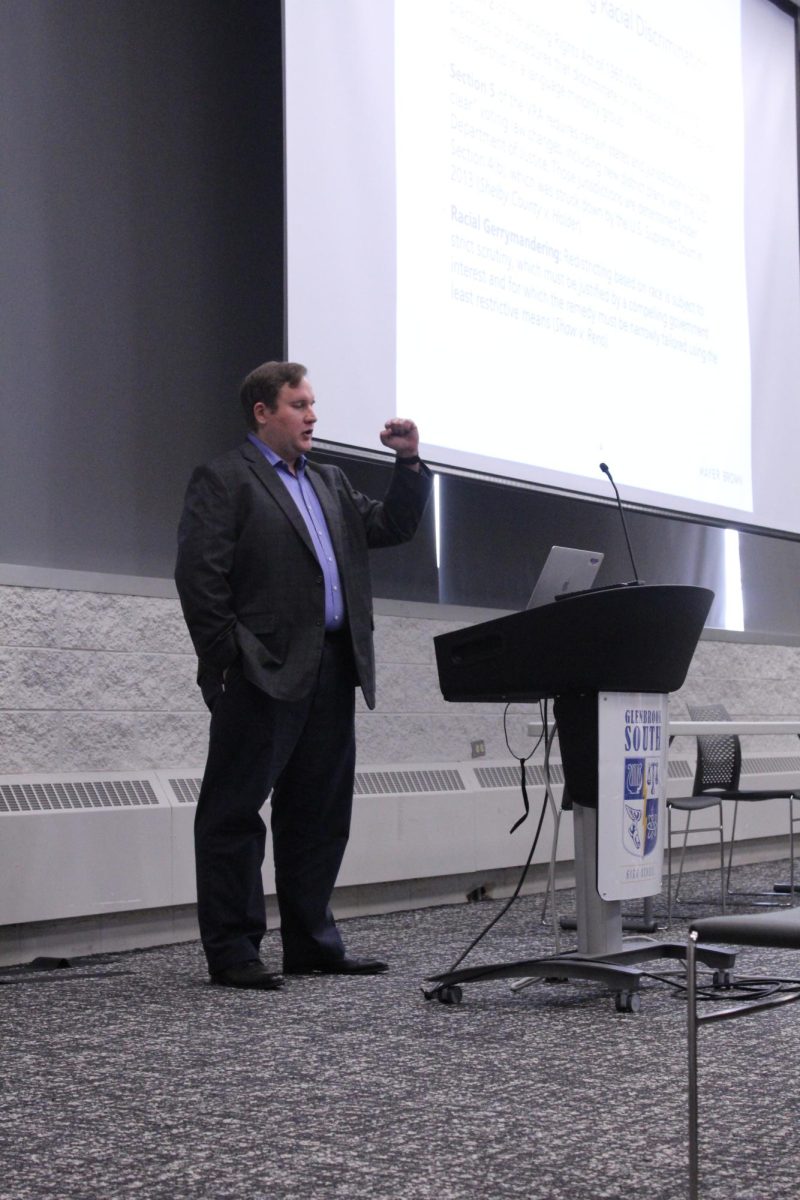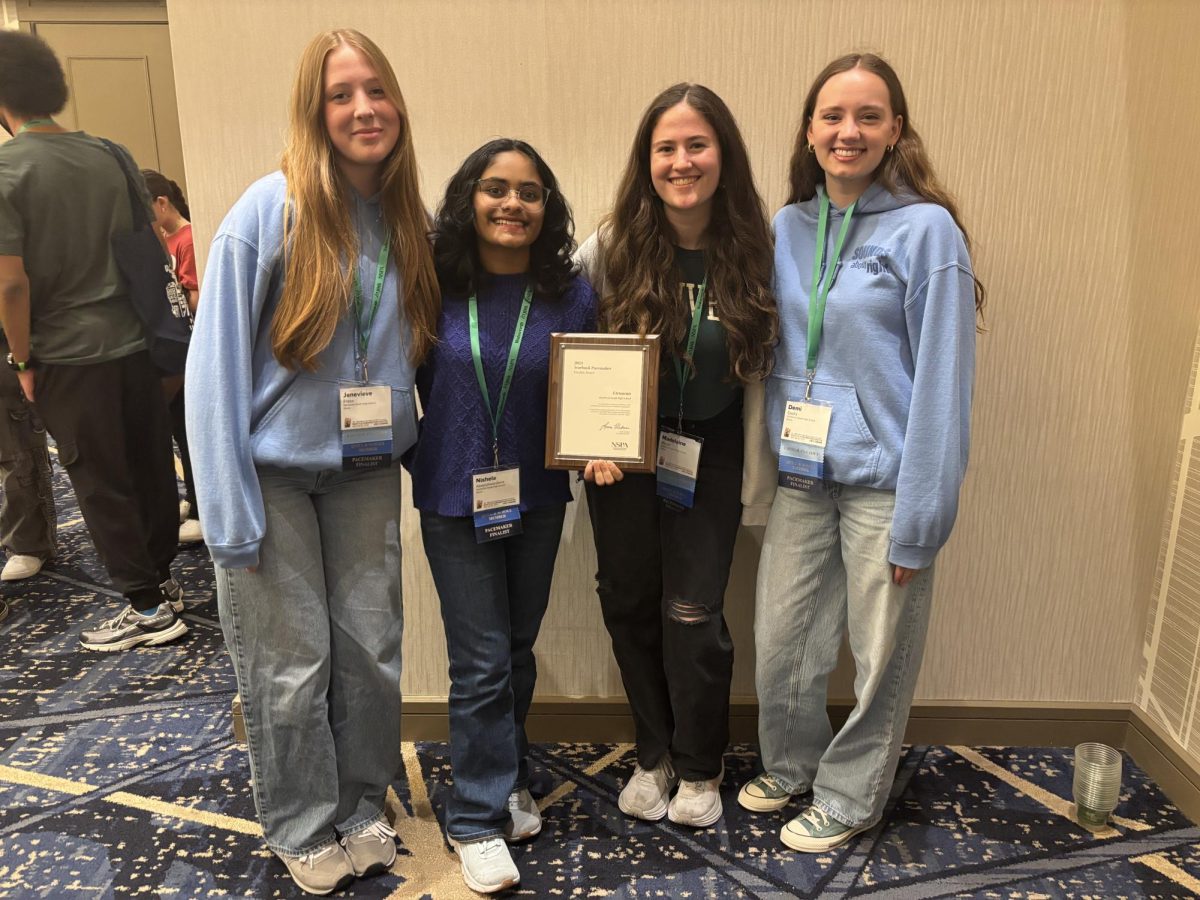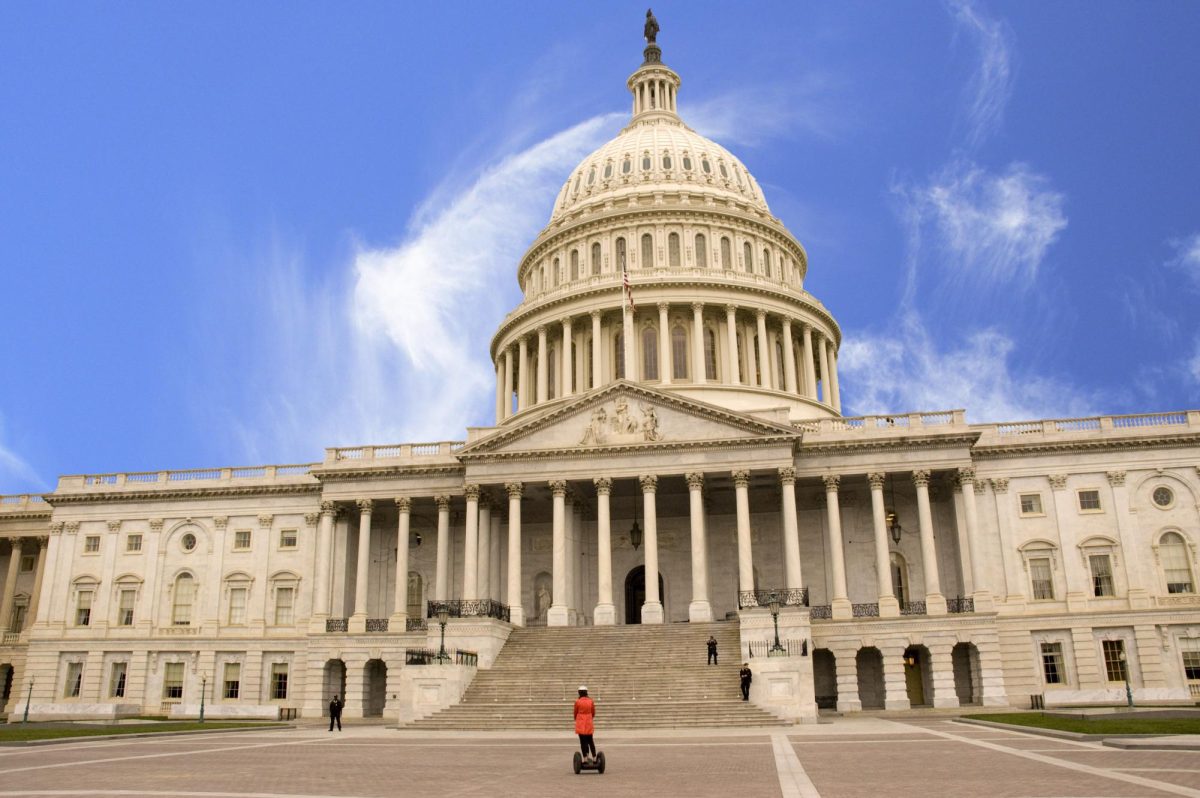In order to get an accurate world understanding of gerrymandering, South’s AP United States Government and Politics (AP Gov) class listened to Mayer Brown lawyers Mitchell Holzrichter and Chris Comstock present about voting issues, David Kane, AP Gov Teacher, said.
CNN reporter Doug Criss describes gerrymandering as “when politicians manipulate voting district boundaries to favor one party over another.” In Illinois, the majority of gerrymandering is to support the Democrats and make sure that the Republicans lose, Kane said. Because politicians are drawing district lines based on their knowledge of where people live, they give their party an unfair advantage in elections and can almost guarantee that their party will win, he added. For this reason, Kane hopes students will learn from the opportunity to discuss real life voting issues with professionals.
“I’m hoping to inspire kids to push back against governments that are [gerrymandering],” Kane said. “Someday, maybe one [of my] students will get on a court or become a representative and say, we have to stop doing this [because] this isn’t right. Let’s find a better way to do this.”
Holzrichter believes gerrymandering should be closely monitored and that states should have protection against politicians looking to skew voting towards a particular party.
“[Not having protection against gerrymandering] is a bad thing,” Holzrichter said. “We should have more protection for voters and a better, more independent way to draw our districts than we currently do.”
The main law used in gerrymandering cases is the Voting Rights Act of 1965, Comstock said.
Section two of the voting rights act states that “No voting qualification shall be imposed or applied by any State in a manner which results in a denial or abridgement of the right of any citizen of the United States to vote on account of race or color,” according to the United States Justice Department.
Although Illinois has tried to pass a constitutional amendment allowing people other than politicians to draw district lines in 2016, the Illinois Supreme Court rejected the case, Kane said. The case was rejected because the petition that was created by the Yes! for Independent Maps, a nonpartisan campaign aiming to reform the Illinois redistricting process, was deemed invalid because the petition was not created by an Illinois citizen, Holzrichter said. Kane looks to states such as California to give an example of proper district drawing.
“Politicians [in] California don’t draw the lines,” Kane said. “An independent group does [in order] to try [and] make it less about politics and more about lumping communities that are similar together.”
The independent group, if given permission by the Illinois Supreme Court, would consist of an independent cartographer and a person uninvolved with the candidates, Holzrichter said.
Senior and AP Government student Claire Baim found the presentation extremely helpful and applicable to what classes are learning.
“It was cool to see how the [topics] we learn about in AP Gov apply in our very own state,” Baim said. “Also, because we learned about gerrymandering from new, different perspectives, it helped me understand the concept better.”
Comstock also encourages students to pay attention to voting issues, which allows students to advocate for their views, he added.
“It’s easy to become cynical with voting [when you] think that your vote [is] never going to matter,” Comstock said. “Educating yourself [about] how the voting process is put into place is the best tool to lose some of that cynicism. You may [still] find things that are unfair, but [with knowledge], you get a much better appreciation of the process and [foresee] positive change.”






